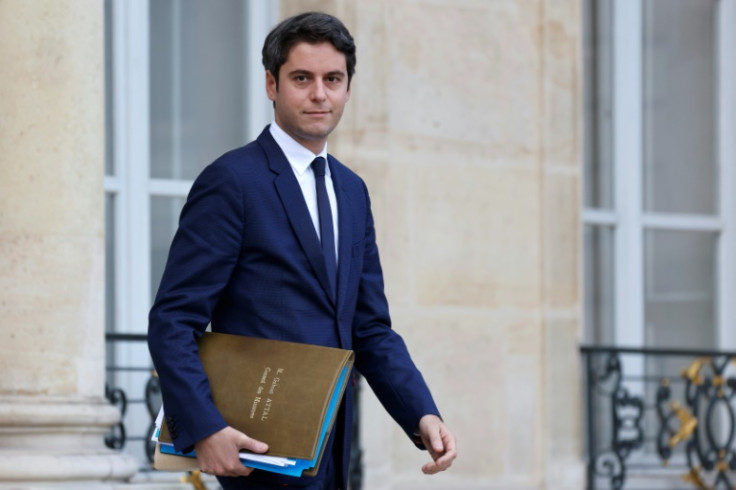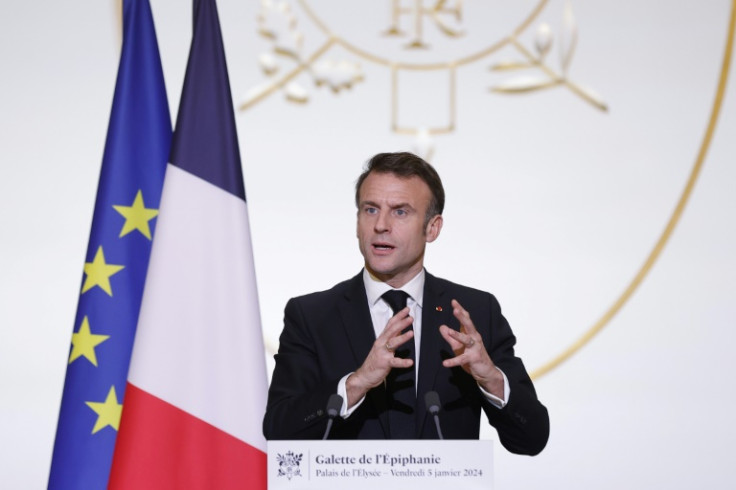
French President Emmanuel Macron was on Monday preparing a long-awaited cabinet reshuffle with the prime minister's job on the line but uncertainty remaining to the last minute over the head of state's intentions.
Commentators see the reshuffle as essential to relaunch Macron's centrist presidency for its final three years, and prevent him becoming a "lame duck" leader.
Since he defeated the far-right to win a second term of office in 2022, Macron has faced protests over unpopular pension reforms, the loss of his overall majority in parliamentary elections and controversy over immigration legislation.
Prime Minister Elisabeth Borne, the second woman to lead the French government, has weathered these problems but never dispelled doubts about her future.
She went for talks to the Elysee in the afternoon, AFP correspondents said, a possible sign that the reshuffle was imminent, and left about an hour later without making any announcement.
Macron is widely seen, according to French media reports, as having four options. One, seen as unlikely but still possible at this stage, is keeping Borne in office.
If she goes, he is expected to pick one of three young men seen as loyal supporters of his centrist movement.
They are 37-year-old Armed Forces minister Sebastien Lecornu, 43-year-old former agriculture minister Julien Denormandie and Education Minister Gabriel Attal, just 34, whose future has been the subject of intense speculation in the last hours.
A source close to the government said that Attal is now the favourite to succeed Borne. If named, he would be France's youngest ever and first openly gay prime minister.
Under the French system, the president sets general policies and the prime minister is responsible for day-to-day government management, meaning the latter often pays the price when an administration runs into turbulence.
There had been speculation the reshuffle would be announced late last week. But no news emerged over the weekend with Macron reportedly weighing his options in seclusion as his residence of La Lanterne in the grounds of the Palace of Versailles.
Macron met Borne, 62, on Sunday night, his office said, although it was unclear what they discussed beyond flooding in northern France and a looming cold snap across the country.
Francois Bayrou, leader of the centrist MoDem party, whose early endorsement of Macron was key to his initial 2017 election success, told BFM TV a change in government makeup was "necessary".
While Macron cannot run again in 2027, relaunching his government is seen as crucial to help prevent far-right figurehead Marine Le Pen becoming president.
Other key posts are also subject to uncertainty.
Interior Minister Gerald Darmanin, 41, a right-winger who spearheaded the immigration reform but burned his fingers when it was initially rejected by parliament, was seen as a candidate for a new job, possibly as foreign minister.
But recent reports indicate he may stay in his post.
The future of Foreign Minister Catherine Colonna has also been the subject of speculation. Finance Minister Bruno Le Maire, the only senior minister to be in office since Macron's election in 2017, is likely to remain in his post.
Macron likes "keeping all options open until the last moment", said a source close to the Elysee.
If Borne goes, the new prime minister would be the fourth since 2017 under Macron who is accused by critics of micro-managing and centralising power in the Elysee.
"I have a scoop for you. I know the name of the (new) prime minister," left-wing politician Raphael Glucksmann joked on France 2 television.
"It's Emmanuel Macron! And the foreign minister will also be Emmanuel Macron, as will the defence minister and the culture minister."









